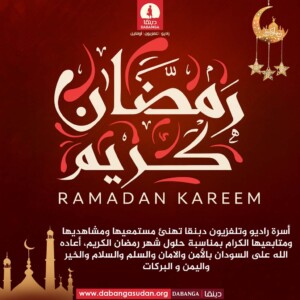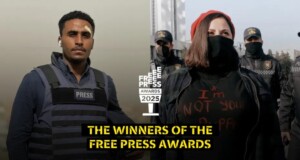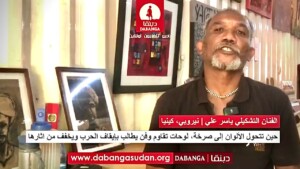Sudanese mourn death of novelist Ibrahim Ishag
On Saturday, the Sudanese Ministry of Culture and Information announced that prominent novelist Ibrahim Ishag died in the United States, at the age of 75.
Ibrahim, who lived in Omdurman, recently travelled to the USA for treatment for his health problems, he was suffering from the last few years.
 Ibrahim Ishag in Omdurman, 2016 (UNAMID)
Ibrahim Ishag in Omdurman, 2016 (UNAMID)
On Saturday, the Sudanese Ministry of Culture and Information announced that prominent novelist Ibrahim Ishag died in the United States, at the age of 75.
Ibrahim, who lived in Omdurman, recently travelled to the USA for treatment for his health problems, he was suffering from the last few years.
The office of Prime Minister Abdallah Hamdok published his condolences to the Sudanese on social media. “[Ishag] is a novelist and narrator, whose writings touched the Sudanese conscience in a unique language”, while presenting “innovative artistic pictures of life in the west of the country”.
In his novels, short stories, and literary articles, Ishag wrote about documenting life in Darfur, western Sudan, a region that has been plagued in recent decades by civil war and tribal conflicts.
Ibrahim Ishaq was born in 1946, in Wadaa village in what is now East Darfur. He went to secondary school in El Fasher, North Darfur. In 1969, he graduated from the Teachers Institute in Omdurman as English teacher. In that year, his first novel ‘An Event in the Village’, was published, by the Ministry of Culture and Information in Khartoum.
Ishag continued to publish novels and short stories, while teaching English at a number of schools and institutes in Omdurman. Since the 1970s, he also wrote articles on “folklore, humanist issues and theoretical views on fiction,” he told Sudanow in 2017.
In 1982, Ishag travelled to Riyadh in Saudi Arabia, where he worked as an English language teacher, until he retired in 2006, and returned to Sudan.
The Darfuri author and literary critic spent his time back in Omdurman by continuing to publish new short stories, writing articles, and being active in the literary life in the Sudanese capital.
In 2009, he assumed the position of chairperson of the Sudanese Writers Union. He served as jury member of the Tayeb Saleh Prize for Novelists organised annually by the Abdelkarim Mirghani Cultural Centre in Omdurman, and later of the Tayeb Saleh International Prize established by mobile telephone provider Zain.
His most famous novels are An Event in the Village (1969), Night and Town Acts (1971), The Old School Festival (1976), and News about the Girl Miyakaya (1980), and The Scandal of the Norein Family (2004). In 2006, the Abdelkarim Mirghani Cultural Centre published his short stories collection People from Kafa.
The language used by Ishag is considered ‘difficult’, as he makes use of local expressions in his narrations written in modern standard Arabic, while he uses the locally spoken language in the dialogues. For this very reason, a number of literary critics ignored his work.
Ishag himself denied in an interview published by the Sudanese El Ray El Aam newspaper in 2007 that he was marginalised because of his ethnic background.
Many Sudanese writers and critics were “guardians of the pure Arabic language”, he explained. It was “a pure and sincere struggle between two literary currents: one of them traditionalist who considered my work as good but destroying the [Arabic] language. The other current was in line with modern artistic methods and did not see my work as threatening”.
With thanks to Awadiya Yousef in Khartoum, who provided Radio Dabanga with background information. Sources (Arabic): aboaagla.blogspot.com, alaraby.co.uk, arabic.rt.com, elwatannews, wikipedia, (interviews in English:) Sudanow, UNAMID, and (about Sudanese literature:) lithub.com
Radio Dabanga’s editorial independence means that we can continue to provide factual updates about political developments to Sudanese and international actors, educate people about how to avoid outbreaks of infectious diseases, and provide a window to the world for those in all corners of Sudan. Support Radio Dabanga for as little as €2.50, the equivalent of a cup of coffee.












 and then
and then